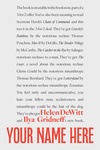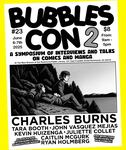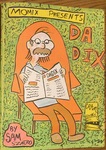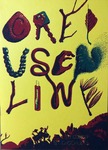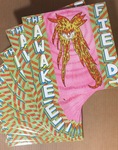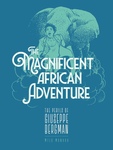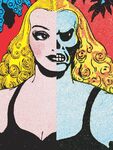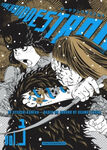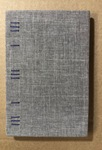
What a study in contrasts we have in the latest pair of releases from that fast rising star of graphic novel publishing, (:01) First Second. On the one hand we have Notes for a War Story, a harshly realistic and remorselessly grim account of youthful thuggery and stupidity, which, coming on the heels of Garage Band being released in English for the first time earlier this year, has us thinking of Gipi as the premier comics deconstructor of contemporary European youth (and likely had others thinking along similar lines as it was awarded the 2005 Goscinny prize for best script and was provlaimed book of the year at at Angouleme in 2006); while, on the other, we have Sara Varon's Robot Dreams, a fantastic and whimsical account of a friendship between a robot and a dog. What could be more different? Confrontation or escape... which is the best approach to deal with these trying times? Well, from the looks of things, there's no need to choose. Both are equally valid on their own terms, as these two timely works more than adequately express.

This is Gipi's first full length, full color graphic novel to be translated into English and released in the United States. This time out, the author of the haunting Ignatz albums, The Innocents and They Found the Car has produced his finest work to date.While featuring the same lithe pen and ink stylings as his previous work -- here accentuated by a delicate watercolor palette -- Garage Band achieves a naturalism that is truly in a class by itself. The landscapes, cityscapes and interiors perfectly render the emotional terrain traversed by his cast of characters. Who would have thought that one of the best graphic novels about being in a band would be done by an Italian? Not us, that's for sure.The garage band of the title is here an ideal synecdoche for that moment on the road to adulthood when life is stuck in limbo, between the reality of the past and the potential of the future, held suspended in isolation between the solidity of one's home and parents and the phantasmic visions of what is coming to be.

Here they are, the next three installments of that swellegant line of superior quality pamphlet comics, the "Ignatz", that is a co-production of Fantagraphics Books and Italy's Coconino Press. The main attraction is Babel 2 which is the second installment (the first was Babel 1, published in 2004 by Drawn & Quarterly in what was the prototype for the Ignatz line) in the continuation of the epic tale begun in Epileptic. Babel is a graphic tour de force that no comics connoisseurs will want to miss. In the second installment of Insomnia, Broersma lightens his palette and turns in what is, in our estimation, the strongest work of his career. Gipi continues the sombre, rain-washed tales of Italian outcasts in They Found the Car that he offered up in the first installment of "Wish You Were Here", The Innocents. All three of these are recommended, as are all of the previous installments Ignatz line. Do yourself a favor and check these out.

Introducing the Ignatz line -- new from Fantagraphics Books in conjunction with Coconino Press in Italy. This new, ongoing series is a joint publishing effort of Fantagraphics Books, Italy's Coconino Press and France's L'Association. The Ignatz series combines the focus on production values of the European graphic novel tradition -- superior grade, heavy interior stock, sharp duo-tone printing, full color wraparound dust jackets -- with the saddle stitched format and periodical release schedule of American comics, to forge a new hybrid with which to drive the medium forward at this time of globalization and artistic transition. Each is printed in duo-tone on high quality, heavy gauge, magazine size -- 8" x 11" -- cream stock and comes with a full color wrap-around, French-fold dust jacket. We applaud this encouraging development and wish it much success. The first three are now in stock: The Innocents by Gipi, another single-name European cartoonist, is about growing up on the streets of Italy; delinquent, yes, but also pure of heart.
